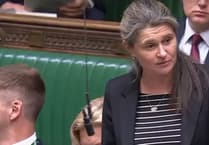Last week, the Prime Minister re-announced the government’s target to build 1.5-million homes by 2029, but in Cornwall, this has raised more questions than answers. Ambitious national goals are laudable, but what do they mean for local communities grappling with existing pressures on infrastructure, planning, and the environment?
Cornwall has been set a target of nearly 4,500 homes per year — more than double what the private sector is currently delivering. A recent report by the Centre for Cities suggests that even if we return to the highest levels of private-sector housebuilding seen in the past 80 years, Cornwall would still fall short by around 5,000 homes over the next four years. This raises a crucial question: if private developers cannot meet these targets, what is the government’s plan?
There’s growing concern that protected areas, like Cornwall’s Areas of Outstanding Natural Beauty and open countryside, could come under pressure as developers and policymakers look for ways to meet these targets. These landscapes are the heart and soul of Cornwall — cherished by residents and visitors alike. Allowing development in such areas could erode the character of our communities and undermine Cornwall’s unique appeal.
The current system also fails to address fundamental issues. For instance, over one-million planning permissions across the country remain unbuilt because developers deem the projects unprofitable. Will loosening regulations lead to more homes or just fewer commitments to essential infrastructure like schools, roads, and healthcare?
Moreover, the revised National Planning Policy Framework (NPPF) could significantly impact Cornwall’s ability to shape its future. If the county’s local and neighbourhood plans are deemed “out of date” because they fail to align with new housing targets, national planning policies will take precedence. This means local democracy—already constrained—could be further undermined, with decision-making increasingly centralised in London.
These challenges aren’t unique to Cornwall. Across the country, councils from all political parties have called the government’s approach “unrealistic” and “impossible to achieve.” Concerns about land availability, infrastructure capacity, and the planning framework's limitations are widespread.
Cornwall needs homes — but they must be the right homes, in the right places, with the right infrastructure to support them. Simply cranking up targets while ignoring the realities on the ground will not solve the housing crisis. Instead, it risks alienating communities, eroding trust in government, and delivering outcomes that serve no one well.
As the government prepares to finalise its housing policies, it must listen to local voices and adopt a more pragmatic, collaborative approach. Anything less risks turning their dream of 1.5-million new homes into major broken promise.
Nick Craker
Conservative councillor for Liskeard
• What do you think? Share your thoughts with us at [email protected]

.jpeg?width=209&height=140&crop=209:145,smart&quality=75)



Comments
This article has no comments yet. Be the first to leave a comment.